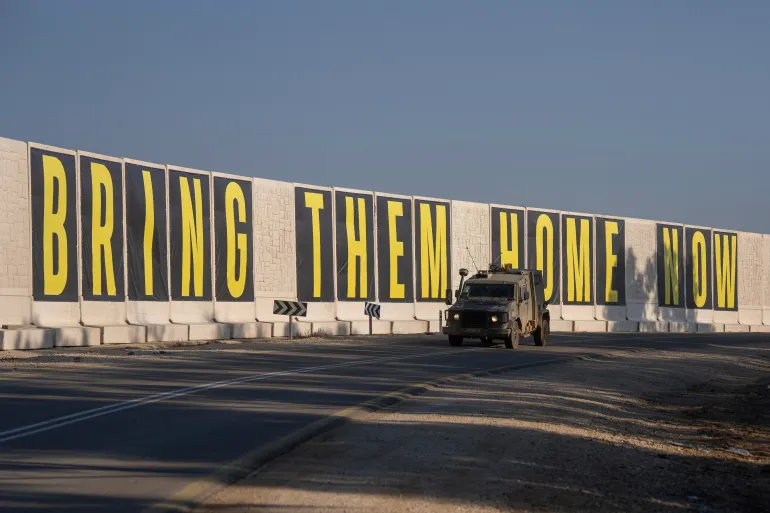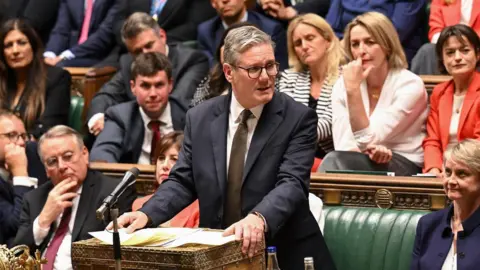Hope for a ceasefire, which would involve the release of Israeli held captive in Gaza and Palestinian prisoners held by Israel, had stalled in recent days.
Nonetheless, an announcement from Israeli Prime Minister, Benjamin Netanyahu’s office has reignited optimism that a deal could be reached.
According to a statement from his office, Netanyahu has authorised Israeli negotiators to continue talks in Doha to secure a captive release deal, after Israel and Hamas traded accusations recently over delaying a deal.
Referring to indirect talks brokered by Qatar, Egypt and the United States, his office said, “Prime Minister Benjamin Netanyahu has approved the professional-level delegation of the Mossad, the [Israeli military] and the ISA [Internal Security Agency] to continue the negotiations in Doha.”
Indirect talks between Israel and Hamas have carried on even as official negotiations have been deadlocked for months as the administration of US President Joe Biden pushed for a deal to be reached.
Both parties have blamed the other for talks stalling as recently as last week when Hamas said that Israel had set “new issues and conditions” on the terms of a deal and Netanyahu accused Hamas of “reneging on understandings.”
In November, Qatar announced that it had paused its role as a ceasefire mediator due to a lack of willingness by the sides to reach an agreement.
A diplomatic source familiar with the matter told a news agency in December that the deal is broadly the same as the proposal put forth by U.S President, Joe Biden earlier in 2024.
The three-phase Biden proposal in late May paired a release of hostages held in Gaza with a “full and complete ceasefire.”
Biden had said that the first phase would last six weeks and include the “withdrawal of Israeli forces from all populated areas of Gaza” and the “release of a number of hostages, including women, the elderly, the wounded in exchange for the release of hundreds of Palestinian prisoners.”
The source divulged, “What has changed is that Israeli forces are likely to stay in Gaza temporarily,” when phase one of a deal starts, namely in the strip of land on the Gaza-Egypt border, called the Philadelphi corridor, and in an area bisecting the strip, known as the Netzarim corridor.
Israel’s demand that its troops remain along the Philadelphi corridor – and Hamas’ insistence that they withdraw – was a key reason for the collapse of talks in August.
News About Renewed Talks Hailed
The Hostages and Missing Families Forum welcomed the decision by Prime Minister Netanyahu to send a negotiating team to Qatar for ceasefire talks.
However, the forum also pushed for urgency. “We cannot miss this window of opportunity! The 100 hostages being held in the depths of Hamas tunnels in Gaza don’t have time for delays in the negotiations,” the forum said on X.
The families demanded that Netanyahu, who they have repeatedly criticised for his failure to get a deal that would see the release of their family members held in Gaza, give the delegation the full authority to reach an agreement.
During a temporary ceasefire deal, mediated by Qatar and Egypt at the end of 2023, more than 100 hostages were released over a period of several weeks in exchange for the release of Palestinians jailed in Israel.
Israel continued to wage war on the enclave when the ceasefire talks stalled last year.
Ensuing Israeli airstrikes on the enclave have hit homes, hospitals, and designated humanitarian areas, causing those already displaced by the heavy bombardment to then flee again amid harsh winter conditions.
At least 45,581 Palestinians have been killed and more than 108,400 people injured since the war began
Meanwhile, humanitarian aid trickles into Gaza, leading to widespread shortages of food, shelter, and other live-saving supplies.
The UN’s agency for Palestinian refugees (UNRWA), among other organizations, has repeatedly called for more aid to be admitted.
READ ALSO: Kantamanto Fire Exposes Systemic Failures and Collective Neglect- Prof. Asare





















